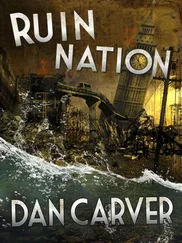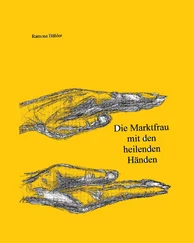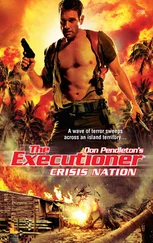Dan Singer - Start-up Nation
Здесь есть возможность читать онлайн «Dan Singer - Start-up Nation» весь текст электронной книги совершенно бесплатно (целиком полную версию без сокращений). В некоторых случаях можно слушать аудио, скачать через торрент в формате fb2 и присутствует краткое содержание. Жанр: Старинная литература, на английском языке. Описание произведения, (предисловие) а так же отзывы посетителей доступны на портале библиотеки ЛибКат.
- Название:Start-up Nation
- Автор:
- Жанр:
- Год:неизвестен
- ISBN:нет данных
- Рейтинг книги:3.5 / 5. Голосов: 2
-
Избранное:Добавить в избранное
- Отзывы:
-
Ваша оценка:
- 80
- 1
- 2
- 3
- 4
- 5
Start-up Nation: краткое содержание, описание и аннотация
Предлагаем к чтению аннотацию, описание, краткое содержание или предисловие (зависит от того, что написал сам автор книги «Start-up Nation»). Если вы не нашли необходимую информацию о книге — напишите в комментариях, мы постараемся отыскать её.
Start-up Nation — читать онлайн бесплатно полную книгу (весь текст) целиком
Ниже представлен текст книги, разбитый по страницам. Система сохранения места последней прочитанной страницы, позволяет с удобством читать онлайн бесплатно книгу «Start-up Nation», без необходимости каждый раз заново искать на чём Вы остановились. Поставьте закладку, и сможете в любой момент перейти на страницу, на которой закончили чтение.
Интервал:
Закладка:
Other than its official leadership circles, Dubai is open to outsiders for business and has a centuries-old history as a trade hub for everything from pearls to textiles. Sheikh Mohammed’s great-grandfather declared his city-state a tax-free port in the early part of the twentieth century. He wanted to attract Iranian and Indian merchants.
In the 1970s, Sheikh Mohammed’s father, Rashid bin Saeed Al Maktoum, ordered the dredging of the Dubai Creek and built one of the planet’s largest man-made harbors at Jebel Ali, twenty-two miles southwest of Dubai. By 1979, the Jebel Ali Port had become the Middle East’s largest port and, according to some experts, ranked alongside the Great Wall of China and the Hoover Dam as the only three man-made constructions that can be seen from space. Jebel Ali is now the world’s third-most-important reexport center (after Hong Kong and Singapore).
For Rashid, this liberal trade outlook was based on the reality that Dubai’s economic wellspring would eventually dry up. With only .5 percent of the oil and gas reserves of neighboring Abu Dhabi, and an even tinier fraction of Saudi Arabia’s, Dubai’s reserves could run out as soon as 2010. As Sheikh Rashid once famously said, “My grandfather rode a camel, my father rode a camel, I drive a Mercedes, my son drives a Land Rover, his son will drive a Land Rover, but his son will ride a camel.”
In addition to creating a world-class port, Sheikh Rashid also established the Middle East’s first free-trade zone, which allowed foreigners to repatriate 100 percent of their capital and profits and allowed 100 percent foreign ownership of properties and businesses. This sidestepped the requirement in the UAE and much of the Arab world that all companies be majority-owned by a local national.
The royal family’s next generation—led by Sheikh Mohammed—took the free-zone model even further, with the creation of business parks dedicated to specific industrial sectors. The first of these was Dubai Internet City (DIC), designed with the help of Arthur Andersen and McKinsey & Company.
DIC provided an ideal base for any technology company doing business in the Middle East, the Indian subcontinent, Africa, or the former Soviet republics—collectively a potential market of 1.8 billion people with a total GDP of $1.6 trillion. In no time 180 companies signed up as tenants, including Microsoft, Oracle, HP, IBM, Compaq, Dell, Siemens, Canon, Logica, and Sony Ericsson.
In one sense, DIC was a remarkable success: by 2006, one-quarter of the world’s top five hundred companies had a presence in Dubai. Dubai then tried to replicate that success story, founding Dubai Healthcare City, Dubai Biotechnology and Research Park, Dubai Industrial City, Dubai Knowledge Village, Dubai Studio City, and Dubai Media City (where Reuters, CNN, Sony, Bertelsmann, CNBC, MBC, Arabian Radio Network, and other media companies all have a major presence).
DIC’s director of marketing, Wadi Ahmed, a British citizen of Arab origin, explains, “We have made Porter’s [cluster] theory a reality. If you bring all the companies from the same segment together . . . opportunities materialize. It’s real-life networking. It is bringing the integrator together with the software developers. Our cluster includes six hundred companies working within two kilometers of each other. . . . Silicon Valley has some similarities but it is an area, not a single managed entity.” 3
It is true that Dubai had at first posted impressive growth rates and that it turned itself into an important commercial hub in a short time. But there was never any comparability between the number of start-ups in Israel and in Dubai, or the amount of venture capital Dubai has been able to attract compared to Israel, not to mention the number of new inventions and patents. So what makes Israel and Dubai different in this way?
Drill down a bit into what is going on in Dubai’s Internet City, for example, and the answer begins to emerge. In DIC you will not find any R&D or new innovation-based companies. Dubai opened its doors to innovative global companies, and many have come. But they have come to spread innovations made elsewhere to a particular regional market. Dubai, therefore, has not created any thriving innovative clusters; rather, it has built large, successful service hubs. So when Mohammed Al Gergawi was handpicked by Sheikh Mohammed to help catalyze Dubai’s economic miracle, the job was to grow and manage this exciting, but not necessarily innovation-generating, venture.
In Israel the story is different. Margalit is one of tens of thousands of serial entrepreneurs. No one picked him; he picked himself. All of his success came from creating innovative companies and hooking into a global venture and tech ecosystem that is constantly searching for new products and markets. And while the physical infrastructure that facilitated this process in Israel may have been inferior to Dubai’s, the cultural infrastructure has proved to be vastly richer soil on which to cultivate innovation.
Attracting new members to a cluster by offering a less expensive way to do business might be sufficient to create a cluster, but not to sustain it. If price is a cluster’s only competitive edge, some other country will always come along to do it more cheaply. The other qualitative elements—such as tight-knit communities whose members are committed to living and working and raising families in the cluster—are what contribute to sustainable growth. Crucially, a cluster’s sense of shared commitment and destiny, which transcends day-to-day business rivalries, is not easy to manufacture.
The obstacles for Dubai, in this sense, are profound. Foreign nationals—European and Persian Gulf business adventurers or South Asian and Arab temporary laborers—are there to make money, period. Once they’ve done so, they have typically returned home or moved on to their next adventure. They have a transactional relationship with Dubai; they are not part of a tight-knit community, and they are not collectively laying roots or building anything new. They evaluate their standing and accomplishments vis-à-vis the communities in their home countries, not those in Dubai. Their emotional commitment and sense of rootedness lie elsewhere. This, we believe, is a fundamental obstacle to a fully functioning cluster, and it may also be an impediment to cultivating a high-growth entrepreneurial economy.
“If there is an Internet bubble in Israel, then Yossi Vardi is the bubble.” 4So says Google cofounder Sergey Brin, referring to Vardi’s role in helping to rebuild Israel’s Internet sector from the ashes of the global technology market crash of 2000. Vardi’s name has become synonymous with the world of Israeli Internet start-ups. He is best known for ICQ, the Internet chat program founded by his son Arik Vardi and three pals when they were in their early twenties. Isaac Applbaum of The Westly Group says that ICQ—once the world’s most popular chat program—was one of a handful of companies that “transformed technology forever,” along with Netscape, Google, Apple, Microsoft, and Intel.
ICQ (a play on “I seek you”) was introduced in November 1996, with seed funding from Vardi. It was the first program to allow Windows users to communicate with one another live. America Online (AOL) invented its own chat program, called Instant Messenger (AIM), at about the same time, but at first AOL’s program was available only to its subscribers.
The Israeli program spread much faster than AOL’s. By June 1997, close to half a year after ICQ’s launch—when only 22 percent of American homes had Internet access—ICQ had over a million users. In six months the number of users had jumped to 5 million, and ten months later to 20 million. By the end of 1999, ICQ had a total of 50 million registered users, making it the largest international online service. ICQ became the most downloaded program in the history of CNET.com, with 230 million downloads.
Читать дальшеИнтервал:
Закладка:
Похожие книги на «Start-up Nation»
Представляем Вашему вниманию похожие книги на «Start-up Nation» списком для выбора. Мы отобрали схожую по названию и смыслу литературу в надежде предоставить читателям больше вариантов отыскать новые, интересные, ещё непрочитанные произведения.
Обсуждение, отзывы о книге «Start-up Nation» и просто собственные мнения читателей. Оставьте ваши комментарии, напишите, что Вы думаете о произведении, его смысле или главных героях. Укажите что конкретно понравилось, а что нет, и почему Вы так считаете.












